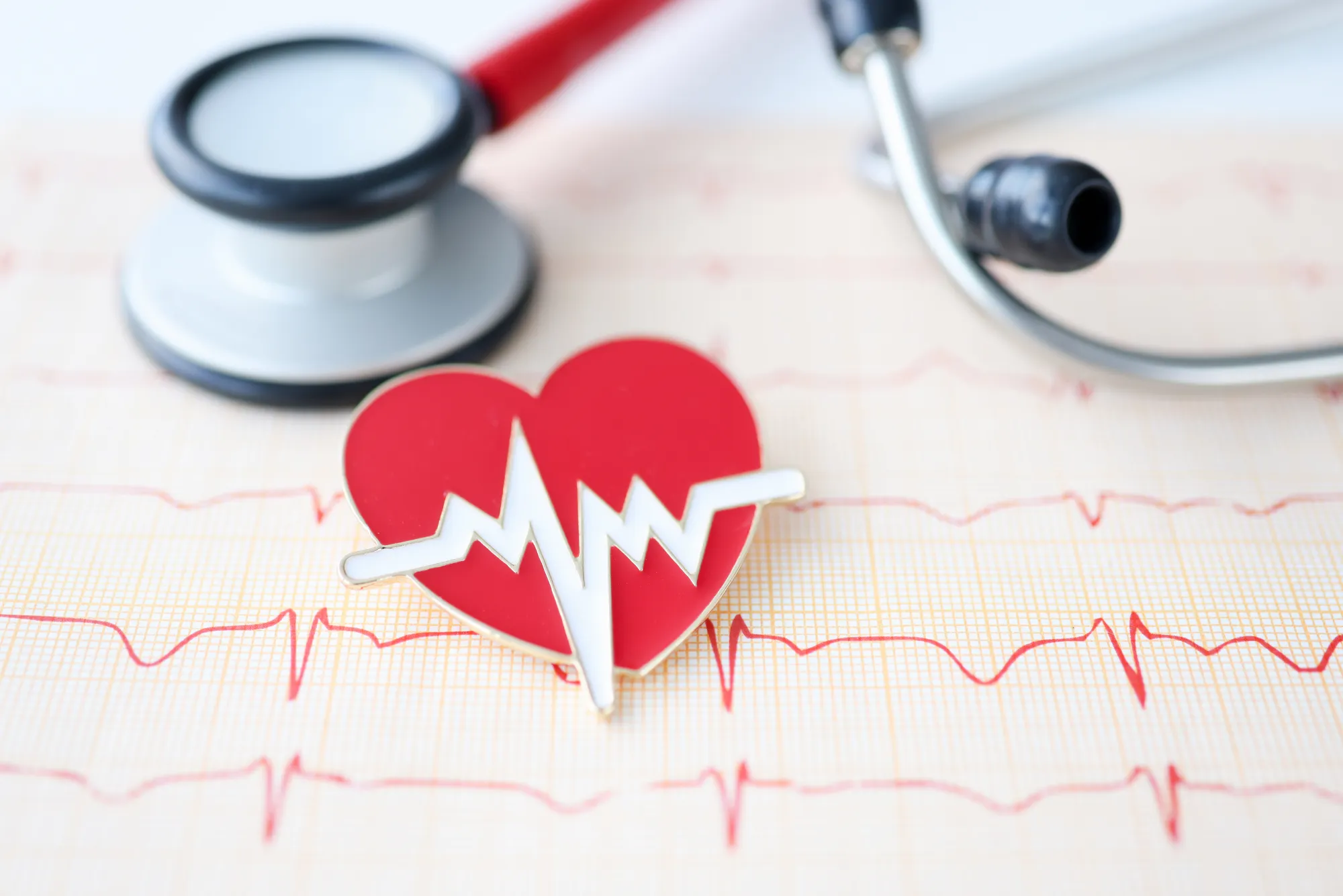Cardiology is a medical specialty focused on diagnosing, treating, and managing diseases and conditions affecting the heart and cardiovascular system. The heart is a vital organ, essential for pumping blood throughout the body, delivering oxygen, and sustaining life. Maintaining heart health is crucial for overall well-being, as cardiovascular diseases are among the leading causes of morbidity and mortality worldwide. Comprehensive cardiology services offer advanced diagnostic and therapeutic solutions to manage heart health effectively. This article explores the wide range of services provided by cardiologists, the latest advancements in heart care, and the holistic approach that ensures optimal cardiovascular health.
The Importance of Heart Health
Maintaining a healthy heart is essential for a long and active life. Cardiovascular diseases (CVDs) can significantly impact a person’s quality of life and increase the risk of serious health complications, including heart attacks and strokes.
Common Cardiovascular Conditions
Cardiovascular conditions vary in severity and can affect different parts of the heart and blood vessels.
Key Cardiovascular Conditions:
- Coronary Artery Disease (CAD): A condition where the coronary arteries, which supply blood to the heart muscle, become narrowed or blocked due to plaque buildup. CAD is a leading cause of heart attacks.
- Heart Failure: A condition where the heart is unable to pump blood efficiently, leading to symptoms like shortness of breath, fatigue, and fluid retention.
- Arrhythmias: Abnormal heart rhythms that can cause the heart to beat too fast, too slow, or irregularly. Common arrhythmias include atrial fibrillation, ventricular tachycardia, and bradycardia.
- Hypertension: Also known as high blood pressure, this condition increases the strain on the heart and blood vessels, leading to a higher risk of heart attacks, strokes, and kidney disease.
- Valvular Heart Disease: Disorders involving the heart valves, which can lead to improper blood flow through the heart. Common conditions include aortic stenosis and mitral regurgitation.
Benefits of Heart Health: Effective management of cardiovascular conditions can prevent complications, improve symptoms, and enhance overall quality of life.
Comprehensive Cardiology Services
Cardiology offers a broad spectrum of services designed to diagnose, treat, and manage heart diseases and conditions. Cardiologists utilize advanced technology and evidence-based practices to provide personalized care for each patient.
Diagnostic Services
Accurate diagnosis is the first step in effective heart care. Cardiologists use various diagnostic tools and tests to assess heart function and identify underlying conditions.
Key Diagnostic Tools and Techniques:
- Electrocardiogram (ECG/EKG): A test that records the electrical activity of the heart to detect arrhythmias, heart attacks, and other heart conditions.
- Echocardiogram: An ultrasound of the heart that provides detailed images of the heart’s structure and function, helping to diagnose heart valve problems, heart failure, and congenital heart defects.
- Stress Testing: A test that evaluates how the heart performs under physical stress, often using a treadmill or stationary bike. It helps diagnose conditions like CAD and exercise-induced arrhythmias.
- Cardiac Catheterization: A procedure where a thin, flexible tube (catheter) is inserted into a blood vessel and guided to the heart to assess coronary arteries, measure pressures, and evaluate heart function.
- Holter Monitoring: A portable ECG device worn by the patient for 24 to 48 hours to continuously monitor heart rhythms and detect intermittent arrhythmias.
Benefits: These diagnostic services provide detailed information about the heart’s health, enabling cardiologists to develop precise and effective treatment plans.
Therapeutic and Interventional Services
Cardiologists offer a range of therapeutic and interventional services to treat cardiovascular conditions and improve heart health.
Key Therapeutic Interventions:
- Medications: A variety of medications are used to manage heart conditions, including:
- Antihypertensives: Medications that lower blood pressure to reduce the risk of heart attacks and strokes.
- Antiplatelets and Anticoagulants: Blood thinners that prevent blood clots and reduce the risk of heart attacks and strokes.
- Statins: Cholesterol-lowering drugs that reduce the risk of atherosclerosis and CAD.
- Beta-Blockers and ACE Inhibitors: Medications that manage heart failure and control arrhythmias by reducing the heart’s workload.
Interventional Procedures:
- Coronary Angioplasty and Stenting: A minimally invasive procedure where a balloon is used to open blocked coronary arteries, and a stent is placed to keep the artery open, improving blood flow to the heart.
- Pacemaker Implantation: A device implanted under the skin that helps regulate abnormal heart rhythms by sending electrical impulses to the heart.
- Ablation Therapy: A procedure that destroys abnormal heart tissue causing arrhythmias, helping restore normal heart rhythm.
- Valve Repair and Replacement: Surgical procedures to repair or replace damaged heart valves, improving blood flow and heart function.
Benefits: Therapeutic and interventional services help manage heart conditions effectively, reduce symptoms, and prevent complications, leading to better heart health and longevity.
Advanced Cardiovascular Care
Cardiology has advanced significantly with the development of new technologies and treatments that enhance the ability to diagnose and treat heart conditions.
Advanced Cardiac Imaging
Advanced imaging techniques provide detailed views of the heart and blood vessels, allowing for more accurate diagnoses and treatment planning.
Key Imaging Techniques:
- Cardiac MRI: A non-invasive imaging technique that provides detailed images of the heart’s structure, function, and blood flow, helping diagnose conditions like cardiomyopathy, heart failure, and congenital heart defects.
- CT Coronary Angiography: A specialized CT scan that visualizes the coronary arteries, allowing cardiologists to assess for blockages and plan interventional procedures.
- Nuclear Cardiology: A type of imaging that uses radioactive tracers to evaluate blood flow to the heart muscle and identify areas of reduced blood flow, often used in stress testing.
Benefits: Advanced cardiac imaging allows for early detection of heart conditions, more precise diagnoses, and improved treatment outcomes.
Electrophysiology
Electrophysiology (EP) is a subspecialty of cardiology focused on diagnosing and treating arrhythmias. EP studies involve detailed mapping of the heart’s electrical activity.
Key EP Procedures:
- EP Study: A test that records the electrical activity and pathways of the heart to identify the source of arrhythmias and guide treatment.
- Catheter Ablation: A minimally invasive procedure that destroys the small area of heart tissue causing abnormal electrical signals, helping restore normal heart rhythm.
- Implantable Cardioverter Defibrillator (ICD): A device implanted in patients at risk of sudden cardiac arrest, which monitors heart rhythms and delivers shocks to restore a normal heartbeat if necessary.
Benefits: Electrophysiology provides effective solutions for managing arrhythmias, reducing the risk of complications, and improving the quality of life for patients with heart rhythm disorders.
Preventive Cardiology
Preventive cardiology focuses on reducing the risk of developing cardiovascular diseases through lifestyle modifications, early detection, and proactive management.
Preventive Strategies:
- Lifestyle Counseling: Education on heart-healthy habits, including a balanced diet, regular physical activity, smoking cessation, and stress management.
- Risk Factor Management: Monitoring and managing risk factors such as high blood pressure, high cholesterol, diabetes, and obesity to prevent heart disease.
- Cardiac Rehabilitation: A structured program that includes exercise, education, and counseling to help patients recover from heart attacks, surgery, or other cardiac events and improve their heart health.
Benefits: Preventive cardiology reduces the risk of heart disease, improves overall cardiovascular health, and enhances the quality of life for patients.
Holistic and Patient-Centered Approach
Cardiology emphasizes a holistic and patient-centered approach to heart health, recognizing that each patient’s experience with heart disease is unique and requires individualized care.
Personalized Care Plans
Each patient receives a personalized care plan tailored to their specific condition, medical history, and lifestyle.
Components of Personalized Care:
- Comprehensive Assessment: A thorough evaluation of the patient’s heart health, including risk factors, symptoms, and diagnostic findings, to develop an individualized treatment plan.
- Multidisciplinary Care: Collaboration with other healthcare providers, including dietitians, physical therapists, and primary care physicians, to provide comprehensive care.
- Regular Monitoring and Adjustment: Ongoing assessment of the patient’s progress and adjustment of the treatment plan as needed to ensure optimal heart health.
Benefits: Personalized care plans ensure that each patient’s unique needs are addressed, leading to better management of cardiovascular conditions and improved quality of life.
Patient Education and Support
Educating patients about their heart health and treatment options is crucial for effective management and prevention.
Education Focus:
- Understanding Heart Conditions: Providing information about the patient’s cardiovascular condition, its causes, symptoms, and potential complications.
- Treatment and Management: Educating patients on the proper use of medications, lifestyle changes, and treatment options to manage their condition effectively.
- Preventive Care: Advising on lifestyle modifications and risk factor management to prevent the progression of heart disease.
Support Services:
- Counseling and Emotional Support: Offering psychological support for patients coping with the stress and anxiety associated with heart disease. Support groups and counseling services can provide emotional support and practical advice.
- Nutritional Guidance: Providing dietary advice to support heart health, including guidance on reducing sodium, managing cholesterol levels, and maintaining a healthy weight.
Benefits: Patient education and support empower individuals to take an active role in managing their heart health, leading to better adherence to treatment plans and improved outcomes.
Conclusion
Cardiology provides comprehensive heart health services through advanced diagnostic and therapeutic interventions, innovative technologies, and a holistic approach to patient care. With personalized treatment plans, patient education, and preventive care, cardiologists can effectively manage a wide range of cardiovascular conditions, ensuring optimal heart health and quality of life. Whether managing chronic conditions like coronary artery disease and heart failure or providing life-saving interventions for acute cardiac events, cardiology is dedicated to improving heart health and supporting the overall well-being of patients.




